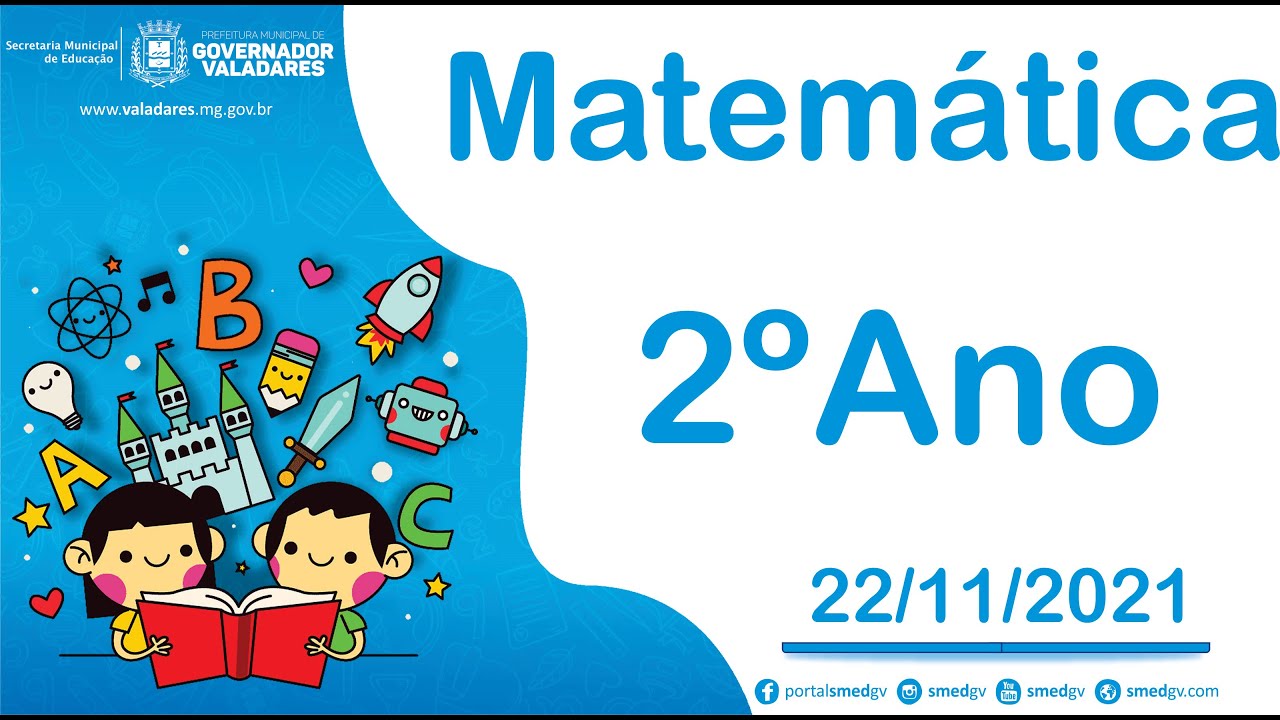DISCALCULIA E O APRENDIZADO DA MATEMÁTICA
Summary
TLDRIn this video, the speaker discusses dyscalculia, a specific learning disorder that affects a child's ability to understand and perform mathematical operations such as addition, subtraction, multiplication, and division. Although dyscalculia is a common condition, it is often underdiagnosed and overlooked. The speaker explains that children with dyscalculia may also face challenges in language development, spatial awareness, and time management. The video emphasizes the importance of early diagnosis and the need for educational accommodations such as using tools like abacuses or calculators, especially for children with significant difficulties in mathematics, to ensure they receive the necessary support.
Takeaways
- 😀 Dyscalculia is a specific learning disorder affecting children's ability to perform mathematical operations like addition, subtraction, multiplication, and division.
- 😀 It is a neurodevelopmental disorder, meaning it arises from how the brain develops, and often goes underdiagnosed.
- 😀 Around 6% of children with typical development are affected by dyscalculia, showing that it is relatively common.
- 😀 Dyscalculia can also affect language development, particularly spoken language, often being noticed early in childhood before math difficulties appear.
- 😀 Children with dyscalculia may struggle with understanding basic concepts like left vs. right and time and space relations.
- 😀 These children often have difficulty with mental calculations and the relationship between numbers, making everyday tasks challenging.
- 😀 Children with dyscalculia may also struggle with using analog clocks because they find it hard to understand how clock hands correspond to numbers.
- 😀 Early recognition of dyscalculia is important, as it allows for timely interventions and educational adaptations to help the child succeed.
- 😀 Educational adaptations might include using tools like an abacus, printed multiplication tables, or calculators during tests to support children with dyscalculia.
- 😀 Not all children need these adaptations; they are specifically for those diagnosed with dyscalculia, ensuring that the support is targeted to the child's needs.
- 😀 Parents and teachers should consider dyscalculia if a child, despite normal intelligence, struggles significantly with math operations from an early stage.
Q & A
What is dyscalculia?
-Dyscalculia is a specific learning disability that affects a child's ability to perform mathematical operations like addition, subtraction, multiplication, and division, despite having typical intellectual development.
How common is dyscalculia among children?
-Dyscalculia is estimated to affect around 6% of children with typical development.
Why is dyscalculia often underdiagnosed?
-Dyscalculia is underdiagnosed because it is not as widely recognized as other learning disabilities, and its symptoms may overlap with other developmental challenges.
What are some early signs of dyscalculia?
-Early signs of dyscalculia include difficulty with mathematical operations, problems with language development (especially spoken language), trouble understanding right and left, and difficulties with time and space relations.
Does dyscalculia affect only mathematics?
-No, dyscalculia often affects other cognitive areas, including language development and spatial awareness. Children with dyscalculia may struggle with concepts like number magnitude, directionality, and time management.
Can a child with dyscalculia understand the concept of basic math operations?
-Yes, a child with dyscalculia may understand the basic concept of mathematical operations, such as knowing that 2 + 3 equals 5, but they struggle with performing these operations.
How does dyscalculia affect a child’s ability to use an analog clock?
-Children with dyscalculia often struggle to understand the logic behind the moving hands of an analog clock, which is a spatial and time-related concept.
What accommodations might be needed for a child diagnosed with dyscalculia?
-Accommodations for children with dyscalculia may include the use of tools like an abacus, printed multiplication tables, or calculators. In some cases, these tools are allowed during school tests or tasks.
Are all children with dyscalculia allowed to use a calculator in school?
-No, only children diagnosed with dyscalculia or other significant learning challenges are allowed to use calculators during tests or tasks. This is a specific accommodation based on the severity of the condition.
What should parents do if they suspect their child has dyscalculia?
-If parents suspect their child has dyscalculia, especially if the child is struggling with math despite normal intellectual development, they should seek a professional evaluation for diagnosis and discuss potential accommodations.
Outlines

Dieser Bereich ist nur für Premium-Benutzer verfügbar. Bitte führen Sie ein Upgrade durch, um auf diesen Abschnitt zuzugreifen.
Upgrade durchführenMindmap

Dieser Bereich ist nur für Premium-Benutzer verfügbar. Bitte führen Sie ein Upgrade durch, um auf diesen Abschnitt zuzugreifen.
Upgrade durchführenKeywords

Dieser Bereich ist nur für Premium-Benutzer verfügbar. Bitte führen Sie ein Upgrade durch, um auf diesen Abschnitt zuzugreifen.
Upgrade durchführenHighlights

Dieser Bereich ist nur für Premium-Benutzer verfügbar. Bitte führen Sie ein Upgrade durch, um auf diesen Abschnitt zuzugreifen.
Upgrade durchführenTranscripts

Dieser Bereich ist nur für Premium-Benutzer verfügbar. Bitte führen Sie ein Upgrade durch, um auf diesen Abschnitt zuzugreifen.
Upgrade durchführenWeitere ähnliche Videos ansehen

OPERAÇÕES: ADIÇÃO, SUBTRAÇÃO, MULTIPLICAÇÃO E DIVISÃO | MATEMÁTICA BÁSICA #2 | Prof. Diego Viug

ATURAN DASAR OPERASI MATEMATIKA

Operaciones con Números Enteros

Cara Mengenalkan Konsep Perkalian dan Pembagian kepada siswa MI/SD

As Quatro Operações Básicas da Matemática - Matemática 2º Ano - 22/11/2021

Persiapan PCPM 39 Bank Indonesia 2024 | 30 Soal TPD Logic Arithmetic Paket 1
5.0 / 5 (0 votes)
